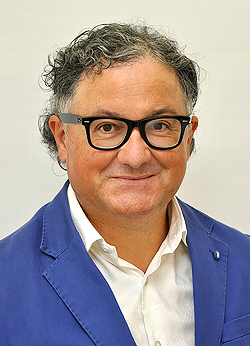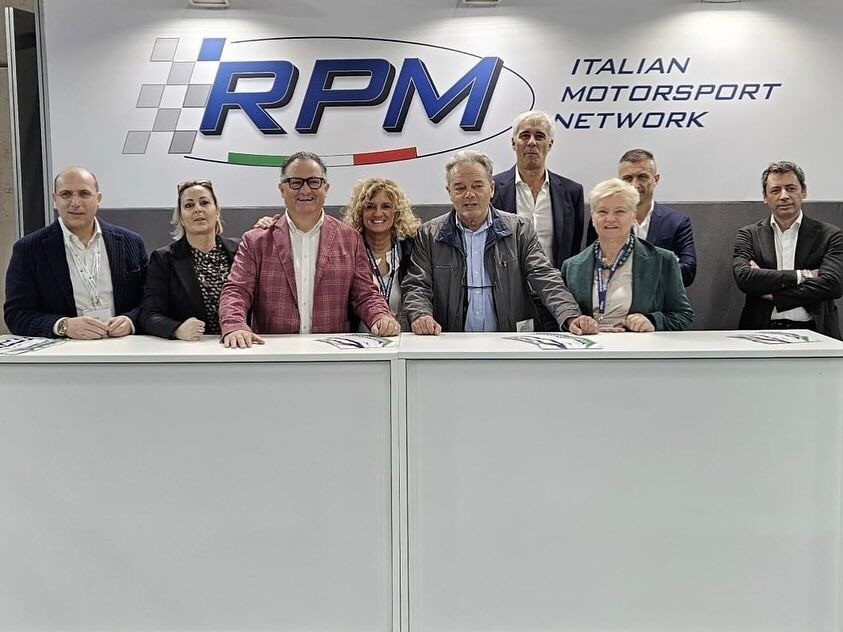On November 16th I have the privilege and pleasure to conceive the format and moderate a conference within Futurmotive Expo & Talks in Bologna. This is a summary of the conference taken from RPM Italian Motorsport network website inclusive of links to the streaming.
RPM at Futurmotive: the conference “Motorsport, Innovation, Knowledge Transfer and Skills”
The event “Motorsport, Innovation and Transfer of Knowledge and Skills: past, present and future from the agile perspective of small and medium-sized enterprises” held as part of Futurmotive last November 16, illuminated the panorama of small and medium-sized enterprises in the context agile of motorsport. Moderated by Riccardo Paterni, Vice President of Business Development and RPM network manager, the event saw the participation of key figures such as Leo Turrini, well-known journalist and writer, Monica Zanetti of Scuderia Bella Epoque, Nicola Scimeca of YCOM, Giovanni Delfino of AUTOTECNICA , Gian Luca Falleti, nanotechnology expert, and Francesco Sedea, RPM President.
Past, Present and Future of Motorsport
Riccardo Paterni introduced the structure of the talk by underlining the historical importance of motorsport in Italy, dating back to a century ago, which today guides projects aimed at the future, mobility and sustainability, innovation and progress in which there are guiding principles management programs that have represented, represent and will represent growth for SMEs in the sector. These guiding principles emerged during the conference.
Innovation: the Vision of Enzo Ferrari and Steve Jobs
Leo Turrini emphasized the role of “feeling” in the land of motors, recalling the figure of Enzo Ferrari as a “stirrer of men”. He underlined the need to look beyond the hyper-technological aspect and to embrace culture and feeling. Turrini compared Ferrari’s innovation to Steve Jobs’ vision of smartphones, highlighting its ability to anticipate people’s desires. Innovation is in fact predicting, seeing ahead, having an original and unique vision of the future.
Watch the introduction by Riccardo Paterni and the speech by Leo Turrini (in Italian): click here.
Stories and Anecdotes from Motorsport
Monica Zanetti, the first female mechanic at Ferrari, shared her journey that began in 1979, recounting her experience with humility and respect for the automotive world. Enzo Ferrari’s life stories added a personal touch to the discussion, bringing the past to life through anecdotes and shared memory.
Watch Monica Zanetti’s speech (in Italian): click here.
Technological Innovation in Motorsport
Nicola Scimeca and Giovanni Delfino addressed the topic of innovation in motorsport. Scimeca described the innovation and development process, based on NASA guidelines, which classify a project from a “purely academic idea” to “millions of iPhones on the market.” In motorsport, we never reach mass production and always remain in a research and development phase. In this context, a sine qua non is the possibility of working with an effective and dynamic, committed team, capable of building and validating prototypes, with passion and competence.
Delfino instead spoke about innovation in the combustion engine, and in particular about the V6 and V8 engines created entirely by Autotecnica: this innovation arises precisely from the ability to predict and quickly adapt to new needs. The thermal engine was in fact born during Covid: in the months in which the company, linked to events, inevitably stopped, it involved everyone in trying to think about the future in a project in which it firmly believed. In 11 months, an engine was born from a blank sheet of paper, demonstrating once again the ability of motorsport companies to develop projects quickly.
Watch the contribution of Nicola Scimeca and Giovanni Delfino (in Italian): click here.
The Future of Motorsport: Competitiveness and Technology
Leo Turrini asked a provocative question about the future of motorsport in the context of sustainable mobility. The answer was unequivocal: motorsport will always have a role, both with combustion and electric engines. Competition and the demand for new technological challenges will continue unabated.
Contribution of SMEs and Technology Transfer
The contribution of small and medium-sized enterprises has emerged as a key element, with companies such as YCOM and Tatuus playing crucial roles in technological development. The SME sector was highlighted as the very backbone of Italian industry, with growth opportunities for both the automotive sector and the businesses involved.
From Motorsport to Aerospace: Technology at the service of the Environment
Gian Luca Falleti, nanotechnology expert, highlighted how the technology developed in motorsport extends to other sectors, from submarines to satellites. He gave the example of his company, born from a personal passion, specialized with several patents in the process of cold vitrification of the paint film, without the use of plastics. This allows not only to reduce the weight of the painting by 10 times, but also to reduce the carbon footprint by 90% compared to a traditional painting.
Watch Gian Luca Falleti’s speech (in Italian): click here.
Motorsport SMEs and Internationalization
Francesco Sedea’s speech underlined the importance of SMEs in the motorsport sector: guided by the passion and values of the past, motorsport SMEs are today fundamental in helping and supporting the larger ones, often involved in projects in which they do not are adequately recognised. RPM was created precisely to enhance these realities and make them grow, contributing to their structure from an organizational and international presence point of view, to ensure that our cultural value continues and expands towards foreign markets. However, institutional recognition and support, including economic, are necessary to facilitate innovation in a sector that develops only if it constantly researches.
Conclusions: Motorsport as a Driver of Innovation
The event highlighted the crucial importance of motorsport in promoting innovation, not only in the context of competitions, but also in the context of sustainable mobility. Pride for the past, passion for the present and vision towards the future are key elements that characterize the fascinating world of motorsport and the businesses that fuel it. With the support of initiatives like Futurmotive, the sector continues to thrive, offering growth opportunities for both large companies and agile SMEs, while remaining true to Enzo Ferrari’s legacy and the values founding this sector.
Watch Francesco Sedea’s speech and Riccardo Paterni’s conclusions (in Italian): click here.
Watch the full recording of the event (in Italian): click here.

